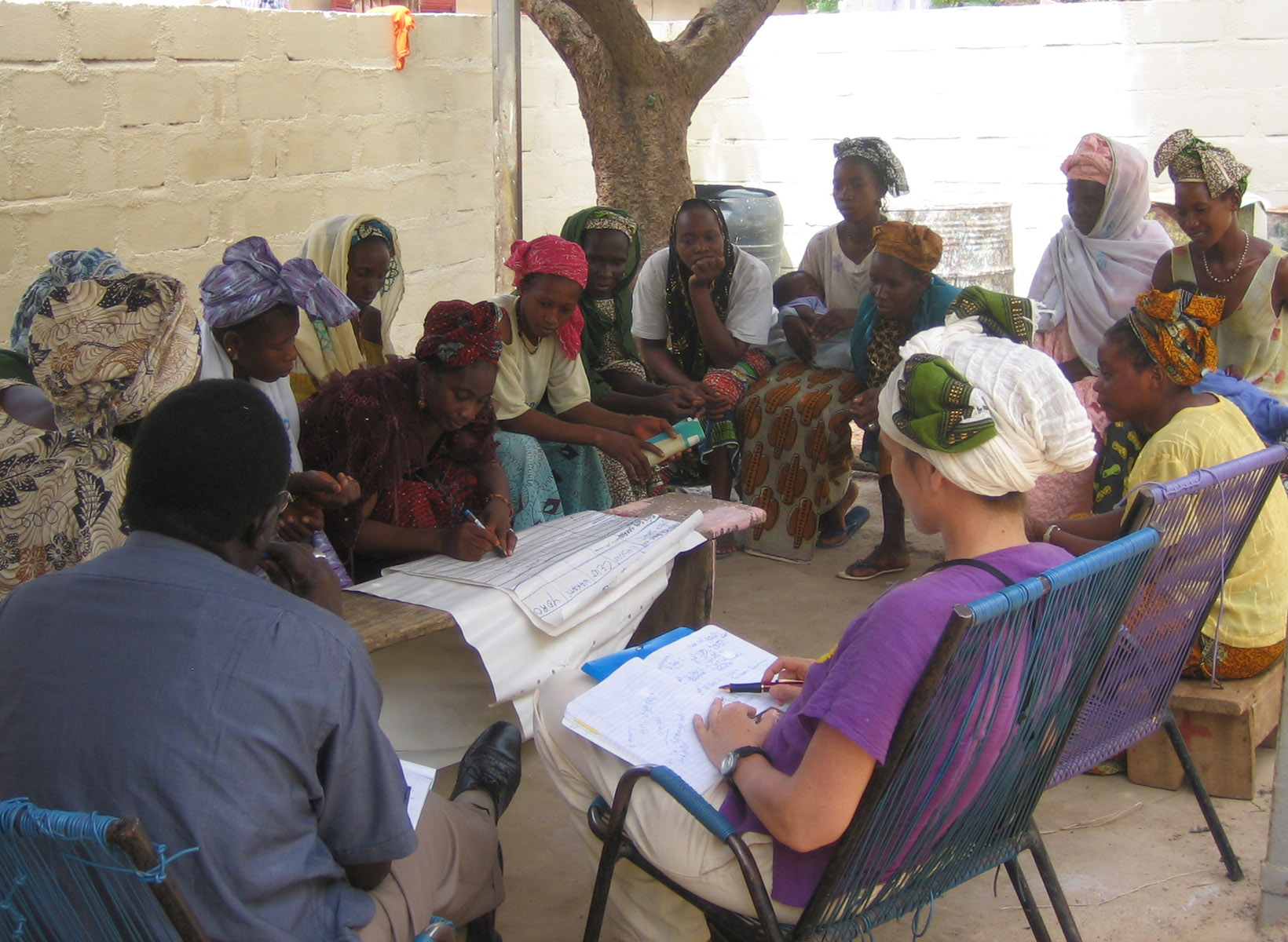University program empowers women through gender workshop in Mali

As part of a program to raise the standard of living in developing countries, a Virginia Tech researcher led a four-day gender workshop in June at Baguineda, Mali.
The workshop, “Gender, Participatory Research, and Technology Transfer,” drew 30 researchers, extension agents, and representatives from institutions in West Africa that partner with the Integrated Pest Management Collaborative Research Support Program (IPM CRSP), managed by Virginia Tech’s Office of International Research, Education, and Development. The program is funded by United States Agency for International Development.
Participants came from Benin, Burkina Faso, Senegal, and Mali to attend the training event, held June 15-18 at the Office of the Irrigated Perimeter of Baguinéda, a regional center outside of the capital of Bamako.
Workshop leader Maria Elisa Christie, director of Women in International Development at Virginia Tech, notes, “Large donor organizations that fund development work recognize that one cannot conduct successful development projects without taking women’s needs into account.”
Yet simply including women is not enough. According to Christie, “It’s important to understand gender as relationships between men and women that affect development rather than simply focusing on involving more women.”
Attendees — both men and women — learned how to think about gender relations through the Rubins/Caro Domains Framework for Gender Analysis: practices and participation, time and space, access and control, and knowledge, beliefs and perceptions.
After studying the framework in a classroom, participants divided into groups and visited villages in the surrounding area. There, they held discussions with men and women, asking them about village resources and developing activity profiles — learning who (men or women or both) does what activity, when, and where. In one exercise, villagers drew a map of their village and the resources in it: a mosque, a soccer field, a maternity clinic, a well, and a cemetery.
“The group was surprised to learn that, while women had access to most of the resources, they had control over very few,” says Christie. “For example, while women are the ones who do all the collecting and carrying of water, men control the wells.”
Understanding resources and who controls them is critical to a successful development program, especially one as large as the IPM CRSP. The program works in 32 countries using research to find ecological, low-cost solutions to agricultural pest problems. Partnering with other U.S. universities as well as with local country institutions, it tackles such issues as invasive species, insect-transmitted viruses, and other threats that affect world food security.
Muni Muniappan, director of the multimillion dollar program, says that it is now more important than ever to incorporate gender considerations into development projects. “By taking gender into consideration in our projects, IPM can make a big leap, reducing the use of pesticides and introducing and adapting alternative techniques.”
Christie explains. “We’ve learned that women control the [adult] literacy classrooms and the market-oriented horticulture. This means we should target women specifically for our IPM interventions and that we can work with entire populations by providing information to women to teach.”
The workshop was the first of its kind for the IPM CRSP, and Christie says she is determined that it will not be the last. She plans to assist IPM CRSP’s regional partners in presenting similar workshops. “Agricultural institutions in the developing world usually have gender experts in-house, but they are left out,” she says. By holding this workshop, she says she hopes to highlight the importance of gender considerations and thereby give local experts more clout.
“What’s exciting is to go to the developing world and find people who are eager to learn more about gender, and to see men learn that empowering women is a good thing and does not threaten them,” says Christie.




